
- Homepage
- Brand
- Certification
- Composition
- Denomination
- Ae Prutah (34)
- Ae3 (14)
- Antoninianus (103)
- Ar Denarius (42)
- Aurelianianus (12)
- Aureus (145)
- Bi Double Denarius (24)
- Bi Nummus (22)
- Centenionalis (16)
- Cistophorus (24)
- Denarius (1268)
- Double Denarius (63)
- Dupondius (16)
- Nummus (119)
- Prutah (27)
- Quadrigatus (13)
- Sestertius (127)
- Siliqua (15)
- Solidus (169)
- Tetradrachm (21)
- Other (603)
- Era
- Year
NGC Ch XF ROMAN COINS Hadrian, AD 117-138. AR Denarius. MAX/023
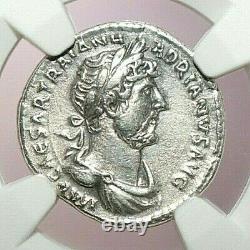
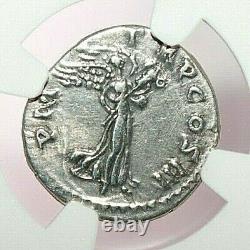
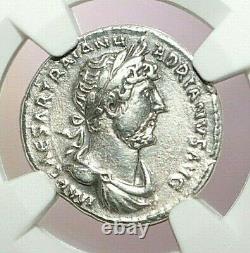
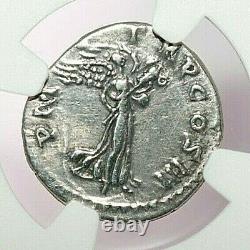
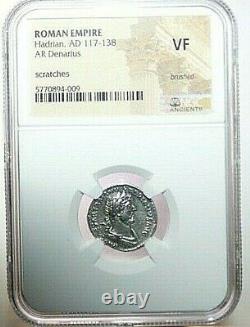
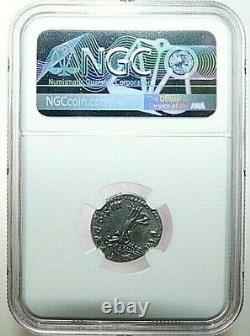


Dear Customers, you will receive exactly the same item which you see on the pictures, not similar or other. Please read the description carefully and review the photos. This article is about the Roman emperor. For other uses, see Hadrian (disambiguation). Marble bust of Hadrian at the Venice National Archaeological Museum.
11 August 117 10 July 138 (20 years and 11 months). Publius Aelius Hadrianus 24 January 76 Italica. 10 July 138 (aged 62) Baiae. Imperator Caesar Traianus Hadrianus Augustus.
Followed by Year of the Five Emperors. Caesar Traianus Hadrianus ; 24 January 76 10 July 138 was Roman emperor. He was born into a Roman Italo-Hispanic family. That settled in Spain from the Italian city of Atri.
His father was of senatorial rank and was a first cousin of Emperor Trajan. He married Trajan's grand-niece Vibia Sabina.
Early in his career, before Trajan became emperor and possibly at the behest of Trajan's wife Pompeia Plotina. Plotina and Trajan's close friend and adviser Lucius Licinius Sura.
Were well disposed towards Hadrian. When Trajan died, his widow claimed that he had nominated Hadrian as emperor immediately before his death. Rome's military and Senate approved Hadrian's succession, but four leading senators were unlawfully put to death soon after. They had opposed Hadrian or seemed to threaten his succession, and the senate held him responsible for it and never forgave him. He earned further disapproval among the elite by abandoning Trajan's expansionist policies and territorial gains in Mesopotamia.Hadrian preferred to invest in the development of stable, defensible borders and the unification of the empire's disparate peoples. He is known for building Hadrian's Wall. Which marked the northern limit of Britannia. Hadrian energetically pursued his own Imperial ideals and personal interests. He visited almost every province of the Empire, accompanied by an Imperial retinue of specialists and administrators.
He encouraged military preparedness and discipline, and he fostered, designed, or personally subsidised various civil and religious institutions and building projects. In Rome itself, he rebuilt the Pantheon. And constructed the vast Temple of Venus and Roma. In Egypt, he may have rebuilt the Serapeum of Alexandria.
He was an ardent admirer of Greece and sought to make Athens the cultural capital of the Empire, so he ordered the construction of many opulent temples there. His intense relationship with Greek youth Antinous. And the latter's untimely death led Hadrian to establish a widespread cult late in his reign.He suppressed the Bar Kokhba revolt. But his reign was otherwise peaceful.
Hadrian's last years were marred by chronic illness. He saw the Bar Kokhba revolt as the failure of his panhellenic ideal. He executed two more senators for their alleged plots against him, and this provoked further resentment. His marriage to Vibia Sabina. Had been unhappy and childless; he adopted Antoninus Pius. In 138 and nominated him as a successor, on the condition that Antoninus adopt Marcus Aurelius. Hadrian died the same year at Baiae. And Antoninus had him deified, despite opposition from the Senate. Includes him among the Empire's Five Good Emperors. ", a "benevolent dictator; Hadrian's own senate found him remote and authoritarian. He has been described as enigmatic and contradictory, with a capacity for both great personal generosity and extreme cruelty and driven by insatiable curiosity, self-conceit, and ambition.The Roman Emperor's admiration for Greece materialised in such projects, ordered during his reign. Hadrian was born on 24 January 76, probably in Italica.
(near modern Seville) in the Roman province of Hispania Baetica. One Roman biographer claims he was born at Rome. He was named Publius Aelius Hadrianus.
His father was Publius Aelius Hadrianus Afer. Rank, born and raised in Italica but paternally linked, through many generations over several centuries, to a family from Hadria modern Atri., an ancient town in Picenum. The family had settled in Italica soon after its founding by Scipio Africanus. Hadrian's mother was Domitia Paulina. Daughter of a distinguished Hispano-Roman senatorial family from Gades Cádiz.
His only sibling was an elder sister, Aelia Domitia Paulina. Hadrian's great-nephew, Gnaeus Pedanius Fuscus Salinator.
(Barcelona) would become Hadrian's colleague as co-consul in 118. As a senator, Hadrian's father would have spent much of his time in Rome. In terms of his later career, Hadrian's most significant family connection was to Trajan. His father's first cousin. Who was also of senatorial stock, and had been born and raised in Italica.Hadrian and Trajan were both considered to be in the words of Aurelius Victor. "Aliens", people "from the outside" (advenae). Hadrian's parents died in 86, when he was ten years old. He and his sister became wards of Trajan and Publius Acilius Attianus.
Who later became Trajan's Praetorian prefect. Hadrian was physically active, and enjoyed hunting; when he was 14, Trajan called him to Rome and arranged his further education.
In subjects appropriate to a young Roman aristocrat. Hadrian's enthusiasm for Greek literature. And culture earned him the nickname Graeculus ("Greekling"). Hadrian's first official post in Rome was as a member of the decemviri stlitibus judicandis. Offices at the lowest level of the cursus honorum. ("course of honours") that could lead to higher office and a senatorial career. He then served as a military tribune. In 95, then with the Legio V Macedonica. During Hadrian's second stint as tribune, the frail and aged reigning emperor Nerva. Adopted Trajan as his heir; Hadrian was dispatched to give Trajan the news or most probably was one of many emissaries charged with this same commission.Then Hadrian was transferred to Legio XXII Primigenia. Hadrian's three tribunates gave him some career advantage.
Most scions of the older senatorial families might serve one, or at most two military tribunates as a prerequisite to higher office. When Nerva died in 98, Hadrian is said to have hastened to Trajan, to inform him ahead of the official envoy sent by the governor, Hadrian's brother-in-law and rival Lucius Julius Ursus Servianus. In 101, Hadrian was back in Rome; he was elected quaestor. Then quaestor imperatoris Traiani , liaison officer between Emperor and the assembled Senate, to whom he read the Emperor's communiqués and speeches which he possibly composed on the emperor's behalf. In his role as imperial ghostwriter. Hadrian took the place of the recently deceased Licinius Sura, Trajan's all-powerful friend and kingmaker.His next post was as ab actis senatus , keeping the Senate's records. During the First Dacian War. Hadrian took the field as a member of Trajan's personal entourage, but was excused from his military post to take office in Rome as Tribune of the Plebs. After the war, he was probably elected praetor.
During the Second Dacian War. Hadrian was in Trajan's personal service again, but was released to serve as legate. Then as governor of Lower Pannonia.
In 107, tasked with holding back the Sarmatians. Now in his mid-thirties, Hadrian travelled to Greece; he was granted Athenian citizenship and was appointed eponymous archon. Of Athens for a brief time (in 112).
The Athenians awarded him a statue with an inscription in the Theater of Dionysus. II2 3286 offering a detailed account of his cursus honorum thus far. Thereafter no more is heard of him until Trajan's Parthian War. It is possible that he remained in Greece until his recall to the imperial retinue, when he joined Trajan's expedition against Parthia.
When the governor of Syria. Was sent to deal with renewed troubles in Dacia, Hadrian was appointed his replacement, with independent command. Trajan got as far as the coastal city of Selinus.
And died there, on 8 August; he would be regarded as one of Rome's most admired, popular and best emperors. The Roman Empire in 125, under the rule of Hadrian. Of Hadrian issued in 119 AD for his third consulship. Inscription: HADRIANVS AVGVSTVS / LIBERALITAS AVG. CO[N]S III, P. According to the Historia Augusta , Hadrian informed the Senate of his accession in a letter as a fait accompli , explaining that "the unseemly haste of the troops in acclaiming him emperor was due to the belief that the state could not be without an emperor". The new emperor rewarded the legions' loyalty with the customary bonus. And the Senate endorsed the acclamation. Various public ceremonies were organised on Hadrian's behalf, celebrating his "divine election" by all the gods, whose community now included Trajan, deified at Hadrian's request. Hadrian remained in the east for a while, suppressing the Jewish revolt that had broken out under Trajan.He relieved Judea's governor, the outstanding Moorish general Lusius Quietus. Of his personal guard of Moorish auxiliaries; then he moved on to quell disturbances along the Danube. In Rome, Hadrian's former guardian and current Praetorian Prefect, Attianus, claimed to have uncovered a conspiracy involving Lusius Quietus and three others leading senators, Lucius Publilius Celsus, Aulus Cornelius Palma Frontonianus and Gaius Avidius Nigrinus.
There was no public trial for the four they were tried in absentia , hunted down and killed. Hadrian claimed that Attianus had acted on his own initiative, and rewarded him with senatorial status and consular rank; then pensioned him off, no later than 120. Hadrian assured the senate that henceforth their ancient right to prosecute and judge their own would be respected. The reasons for these four executions remain obscure. Official recognition of Hadrian as legitimate heir may have come too late to dissuade other potential claimants.
Hadrian's greatest rivals were Trajan's closest friends, the most experienced and senior members of the imperial council; any of them might have been a legitimate competitor for the imperial office (capaces imperii); and any of them might have supported Trajan's expansionist policies, which Hadrian intended to change. One of their number was Aulus Cornelius Palma.
Who as a former conqueror of Arabia Nabatea. Would have retained a stake in the East. The Historia Augusta describes Palma and a third executed senator, Lucius Publilius Celsus (consul for the second time in 113), as Hadrian's personal enemies, who had spoken in public against him. The fourth was Gaius Avidius Nigrinus. An ex-consul, intellectual, friend of Pliny the Younger.
And (briefly) Governor of Dacia at the start of Hadrian's reign. He was probably Hadrian's chief rival for the throne; a senator of highest rank, breeding, and connections; according to the Historia Augusta , Hadrian had considered making Nigrinus his heir apparent, before deciding to get rid of him. Soon after, in 125, Hadrian appointed Quintus Marcius Turbo.
Turbo was his close friend, a leading figure of the equestrian order, a senior court judge and a procurator. As Hadrian also forbade equestrians to try cases against senators, the Senate retained full legal authority over its members; it also remained the highest court of appeal, and formal appeals to the emperor regarding its decisions were forbidden. If this was an attempt to repair the damage done by Attianus, with or without Hadrian's full knowledge, it was not enough; Hadrian's reputation and relationship with his Senate were iredeemably soured, for the rest of his reign. Some sources describe Hadrian's occasional recourse to a network of informers, the frumentarii.
To discreetly investigate persons of high social standing, including senators and his close friends. The male figure is a portrait of Hadrian, the female figure was perhaps reworked into a portrait.
Hadrian spent the final years of his life at Rome. In 134, he took an Imperial salutation. For the end of the Second Jewish War (which was not actually concluded until the following year). Commemorations and achievement awards were kept to a minimum, as Hadrian came to see the war "as a cruel and sudden disappointment to his aspirations" towards a cosmopolitan empire. The Empress Sabina died, probably in 136, after an unhappy marriage with which Hadrian had coped as a political necessity.
The Historia Augusta biography states that Hadrian himself declared that his wife's "ill-temper and irritability" would be reason enough for a divorce, were he a private citizen. That gave credence, after Sabina's death, to the common belief that Hadrian had her poisoned. In keeping with well-established Imperial propriety, Sabina who had been made an Augusta sometime around 128 was deified not long after her death. The item "NGC Ch XF ROMAN COINS Hadrian, AD 117-138.
MAX/023" is in sale since Sunday, November 22, 2020. This item is in the category "Coins & Paper Money\Coins\ Ancient\Roman\ Imperial (27 BC-476 AD)".bean_medals" and is located in Riga, centrs. This item can be shipped worldwide.
- Cleaned/Uncleaned: Cleaned
- Modified Item: No
- Certification Number: 5770894-009
- Certification: NGC
- Date: AD 117-138
- Grade: VF
- Year: AD 117-138
- Composition: Silver
- Ruler: Marcus Aurelius
- Historical Period: Roman: Imperial (27 BC-476 AD)
- Provenance: Ownership History Not Available
- Denomination: Denarius
- KM Number: 5770894-009
- Era: Ancient

